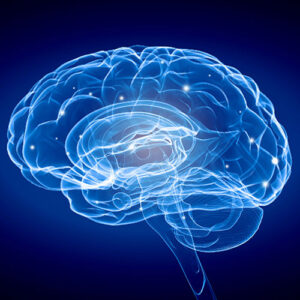Oversleeping is a symptom that occurs in fifteen percent of persons with depression. She points out that it appears to be associated with typical depression more often than with chronic depression. A particular kind of sadness known as a typical depression is characterized by a person’s ability to experience an uptick in their mood in reaction to a pleasant life event. However, even though their disposition could improve, this improvement is often fleeting, and the underlying sadness is still there.
Other symptoms include increased hunger and greater interpersonal sensitivity, such as the experience of being rejected. In addition, excessive napping is often a symptom. And this sadness contributes to other reasons why sleep might be impaired to such a significant degree. For example, mental health issues tend to make things hard to sleep effectively.
On the other hand, not getting enough sleep, which may include bouts of insomnia, could play a role in developing mental health issues or worsening existing ones. Both periods of rest as well as mental health are complicated issues that are influenced by a wide variety of factors. However, due to the close connection between the two, there is strong evidence to suggest that improving sleep can positively impact mental health and can be an element in the treatment of a wide variety of psychiatric disorders.
Some Mental Health Issues Related to Sleep
The relationship between sleep and various particular mental health problems and neurodevelopmental disorders makes the close connection between sleep and mental health even more apparent. Furthermore, this connection sheds light on how sleep is linked to several conditions that affect mental health.
ADHD
ADHD is a neuro condition that affects attention span and impulsiveness. The disorder may persist into adulthood and only be identified adequately after an adult has reached a certain age. People with ADHD have trouble sleeping. Insomnia and extreme daytime sleepiness are possible side effects. Obstructive sleep apnea (OSA) and restless leg syndrome (RLS) are also more common in people with ADHD. ADHD-related sleep problems have primarily been studied in children, but adults have also been affected. Sleep and ADHD appear to have a bidirectional relationship. Additionally, sleep deprivation can exacerbate ADHD symptoms such as inattention or hyperactivity.
Anxiety Disorders
About 20% of adults and 25% of adolescents in the United States suffer from anxiety disorders yearly. Excessive fear or concern may hurt daily life and increase the risk of health issues such as diabetes and heart disease. One might suffer from various types of illnesses caused by anxiety, such as generalized anxiety, social anxiety, panic disorder, particular phobias, OCD, and PTSD.
As a result of anxiety, insomnia is a common condition. Hyper arousal contributes significantly to insomnia because it causes the mind to race, making it difficult to fall asleep. Sleep issues may become a new source of anxiety, making it more difficult to drift off to sleep in the first place.
Researchers have discovered a particularly significant link between sleep deprivation and post-traumatic stress disorder (PTSD). People with PTSD often suffer from nightmares and a constant state of alertness, making it difficult to sleep. At least 90% of U.S. veterans with battle PTSD from recent wars have insomnia, a common symptom of PTSD.
Anxiety isn’t the only cause of insomnia. According to a recent study, chronic insomnia could be a risk factor for developing an anxiety disorder in people at a higher risk.
Autism Spectrum Disorder
Autism spectrum disorder refers to a group of neurodevelopmental abnormalities that impact a person’s ability to communicate and engage socially. These diseases are usually diagnosed early in life and may continue throughout maturity. There is a greater incidence of sleep disorders among children and adolescents with autism spectrum disorder (ASD), such as insomnia and sleep-disordered breathing.
These challenges tend to be more chronic than sleep problems in children who do not have autism spectrum disorder (ASD), and they may lead to a progression of the disease and a decrease in quality of life for persons with the disease.
The treatment of insomnia and other types of sleep disorders is an essential component of therapy for persons with autism spectrum disorder (ASD) because it has the potential to reduce excessive daytime drowsiness and other types of health and behavior issues.
Bipolar Disorder
Mania and sadness are symptoms of bipolar illness, characterized by alternating periods of high and low mood (depression). Even though the sensations and symptoms accompanying manic and depressive episodes of bipolar disorder are relatively distinct from one another, both types of episodes may significantly negatively impact a person’s ability to function normally in day-to-day life.
How persons with bipolar illness sleep change significantly depending on the mood they are currently experiencing. People with bipolar disorder often have less of a need to sleep, but during depressive episodes, they could sleep too much. Sometimes, a person will still have sleep disturbances, even between outbreaks.
According to research on the subject, many persons who suffer from bipolar illness report experiencing shifts in their regular sleeping habits before the commencement of an episode. There is also evidence that sleeping issues can create manic or depressive episodes or worsen them. As a result of the two-way interaction that exists between bipolar disorder and sleep, there is also evidence that treating insomnia may minimize the adverse effects of bipolar illness.
Depression
Depression is a mood disease characterized by feelings of despair or hopelessness, and it is believed over 300 million individuals throughout the globe suffer from depression.
Insomnia affects around seventy-five percent of sad individuals, and many people with depression also struggle with excessive daytime drowsiness and hypersomnia, another term for sleeping too much.
Historically, it was believed that having trouble sleeping was a sign of depression; however, there is evidence to show that not getting enough sleep might either cause depression or worsen it.
The fact that it is so difficult to determine definitive causes and effects reflects what is thought to be a two-way interaction in which sleep issues and depression symptoms can mutually reinforce one another.
Even though this may result in a self-fulfilling prophecy in which a lack of quality sleep makes depression worse, disrupting sleep quality, the door is now open for developing potentially helpful novel treatments for depression. An emphasis on better sleep may well have a secondary advantage of alleviating the depression symptoms for at least a few individuals. It is the corollary benefit.
Schizophrenia
Schizophrenia is an illness of mental health defined by difficulties in discerning what is real from what is not accurate. Insomnia and disruptions in their circadian rhythms are common complaints among individuals diagnosed with schizophrenia.
The drugs that are used for the treatment of schizophrenia might make sleep difficulties much worse. However, as a result of the possibility that a lack of sleep and the symptoms of schizophrenia mutually reinforce one another, establishing and maintaining stable and regular sleep patterns may be beneficial.
Seasonal Affective Disorder
Seasonal affective disorder (SAD) is a kind of depression that most often strikes individuals during the winter or other periods of the year when there is less daylight. The seasonal affective disorder may affect people living in northern regions between the autumn and winter months. This illness is intimately connected to the disturbance of a person’s internal biological clock, also known as the circadian rhythm, which plays a vital role in regulating various body functions, including sleep.
Therefore, it should be no surprise that persons who suffer from the seasonal affective disorder tend to sleep excessively or insufficiently or experience variations in their sleep patterns.
Eating Disorders and Sleep
Eating disorders such as anorexia nervosa, bulimia nervosa, and binge eating disorder involve severe disturbances in eating behaviors and related thoughts and emotions. These disorders often coexist with other mental health disorders like depression and anxiety, and they also have a significant impact on sleep.
Sleep problems are common in individuals with eating disorders, and the nature of these sleep disturbances may vary depending on the specific type of disorder. For instance, insomnia is common in those with anorexia nervosa, whereas individuals with bulimia nervosa or binge eating disorder may experience both insomnia and hypersomnia (excessive sleepiness). It’s also not unusual for individuals with these disorders to have irregular sleep schedules, with frequent nighttime awakenings and difficulty falling asleep or staying asleep.
Moreover, the relationship between sleep and eating disorders is believed to be bidirectional, meaning that sleep disturbances can contribute to the development and persistence of these disorders, and the disorders themselves can exacerbate sleep problems. For example, starvation and malnutrition, common in anorexia nervosa, can disrupt sleep patterns and lead to insomnia. Conversely, poor sleep can heighten emotional distress and exacerbate disordered eating behaviors.
Treating the sleep disturbances associated with eating disorders can therefore play a crucial role in overall treatment and recovery. Cognitive-behavioral therapy for insomnia (CBT-I) has shown promise as an effective approach for improving sleep in individuals with these disorders, and there is growing evidence that improving sleep can also help to alleviate eating disorder symptoms.
Substance Use Disorders and Sleep
Substance use disorders, including alcohol use disorder and drug addiction, are also frequently associated with sleep disturbances. These disorders can interfere with the normal functioning of the sleep-wake cycle, leading to problems such as insomnia and excessive daytime sleepiness. Alcohol, for example, can disrupt the architecture of sleep, reducing the quality and restorative nature of sleep.
Moreover, withdrawal from substances can further exacerbate sleep problems, creating a vicious cycle that can make recovery more difficult. For example, individuals withdrawing from alcohol often experience severe insomnia, which can increase the risk of relapse.
Once again, the relationship between sleep and substance use disorders is bidirectional. Sleep problems can increase the risk of developing a substance use disorder, and the disorder itself can worsen sleep problems. As such, addressing sleep disturbances can be a crucial part of treatment and recovery.
Conclusion
The connection between sleep and mental health is complex and bidirectional, with each influencing the other in various ways. While many mental health conditions can lead to sleep disturbances, poor sleep can also exacerbate mental health problems or even contribute to their development.
However, the close connection between sleep and mental health also presents opportunities for intervention. Improving sleep can have a positive impact on mental health, and addressing sleep problems can be an integral part of treatment for various mental health conditions.
Understanding and addressing the links between sleep and mental health can therefore play a crucial role in promoting overall wellbeing and recovery. Further research is needed to better understand these connections and to develop effective strategies for improving sleep and mental health.






